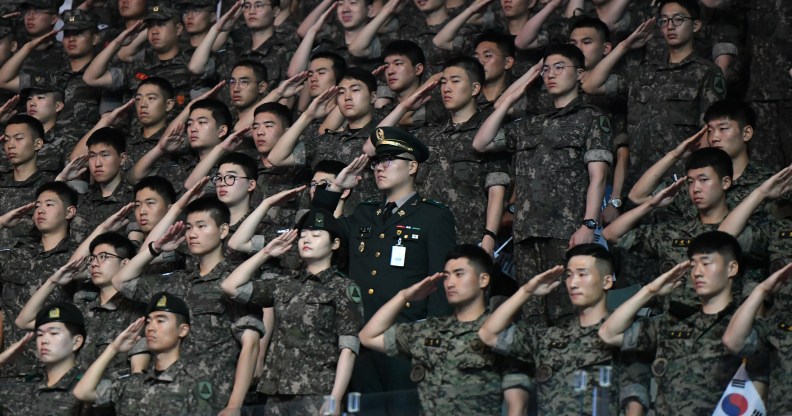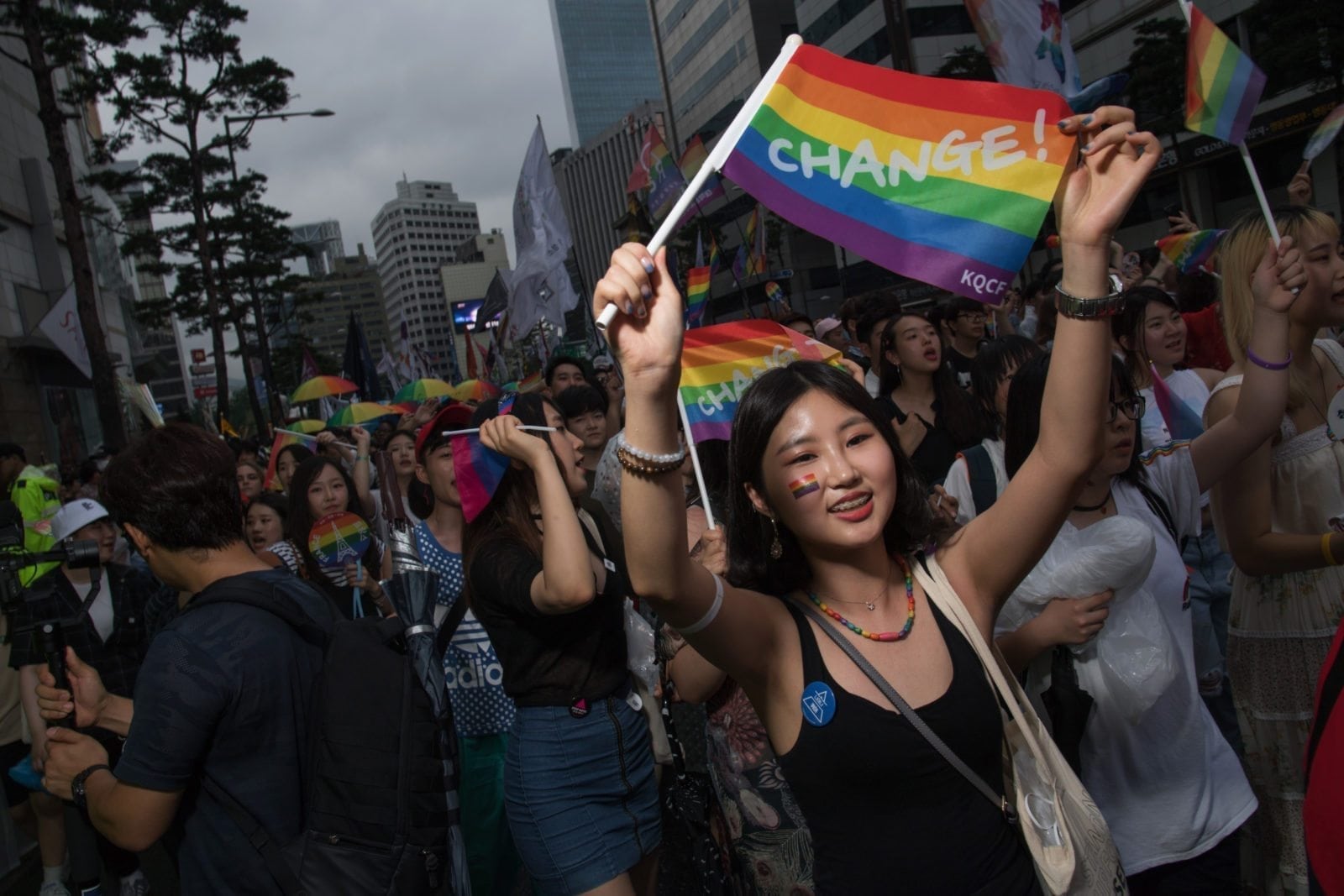South Korean LGBT soldiers face physical and sexual violence, says report

South Korean soldiers salute during a ceremony marking the 69th anniversary of the outbreak of the Korean War in Seoul on June 25, 2019. (JUNG YEON-JE/AFP/Getty)
While LGBT+ people are becoming “increasingly visible” in South Korea, soldiers are facing “harassment, discrimination and violence at the hands of their commanding officers and their peers,” says a new report.
According to the report “Serving in Silence: LGBTI people in South Korea’s military” released by Amnesty International yesterday (July 11), it is compulsory for all men in the country to serve a minimum of 21 months in the military.
For South Korean civilians there is no law criminalising gay sex, but Article 92-6 of the Military Criminal Act “punishes sexual activity between men in the military with up to two years in prison under an ‘indecent acts’ clause,” said the report.
It continued: “Military code allows the invasion of privacy of soldiers allegedly engaging in sex between men both on and off base and on or off duty.
“Soldiers who do not conform to existing gender norms – including gay men, bisexual men, transgender women and non-binary people – find it extremely difficult to fulfil compulsory military service free from bullying, harassment, discrimination and violence at the hands of their commanding officers and their peers.”
When men turn 19, they are required to undergo physical and psychological testing to assess their capability for military service, and several people interviewed for the report said they were questioned during testing about whether they were attracted to the same sex.

Pride in Seoul, South Korea. (ED JONES/AFP/Getty Images)
LGBT+ soldiers in South Korea are “subjected to sexual abuse”
One anonymous former soldier interviewed for the report spoke of sexual and physical assault by higher ranking officers that caused him and others to become mentally ill.
He said: “In my squad, there were many soldiers who were considered ‘feminine’ and usually in the lowest or second-lowest ranks, that were ordered by higher-ranking soldiers to locations that were less conspicuous, such as laundry rooms or shower rooms.
“Once there, these soldiers were subjected to sexual abuse. On some occasions, officers ordered lower-ranking soldiers to nearby motels during night shifts and then raped them.
“One night, I saw a soldier being sexually abused. When he got angry, the person abusing him who was his senior started to beat him fiercely and forced him to drink from the toilet bowl.”
When the anonymous soldier offered help to another man in reporting the abuse, he was told by the higher ranking officer: “If you make a report, I will beat you until you will not be able to recover.”
Recommendations by Amnesty International include the repeal of Article 92-6 of the military code, and a comprehensive anti-discrimination act in South Korea.

